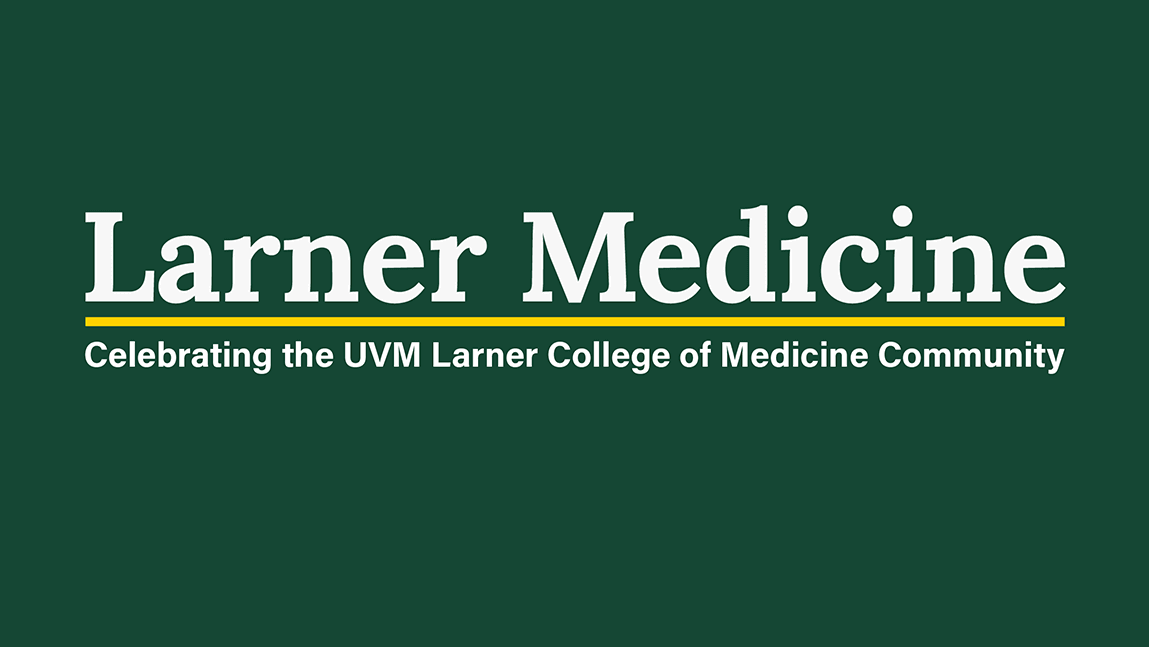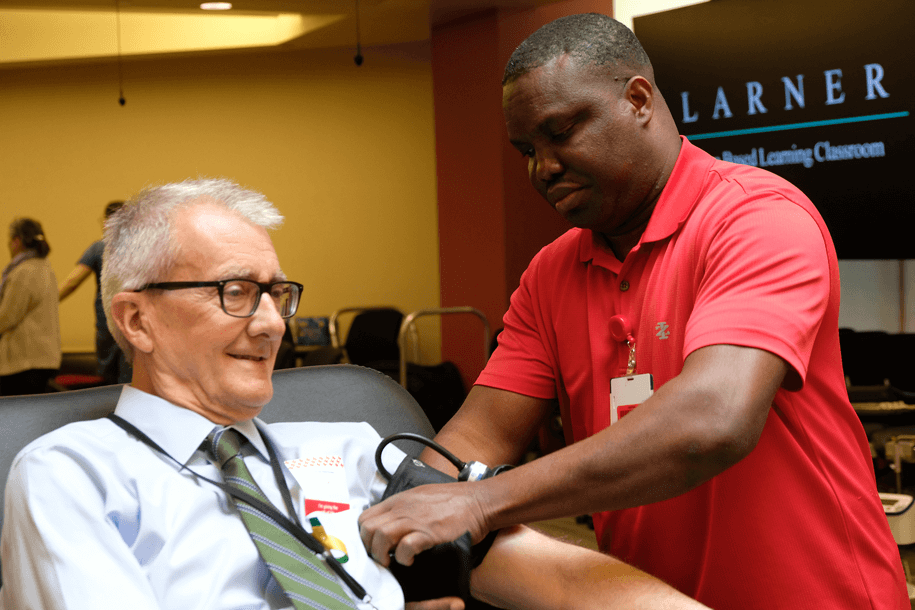
On June 13, the third annual Larner College of Medicine blood drive drew in donations from 67 registrants throughout the day. As many in the community are aware, this cause is important to Larner Dean Richard L. Page, M.D., whose personal experience through his granddaughter’s story inspired him to personally donate and to advocate for others to give blood if they are able. The American Red Cross Northern New England Vermont Chapter volunteers and collections technicians supported this year’s Larner community drive.
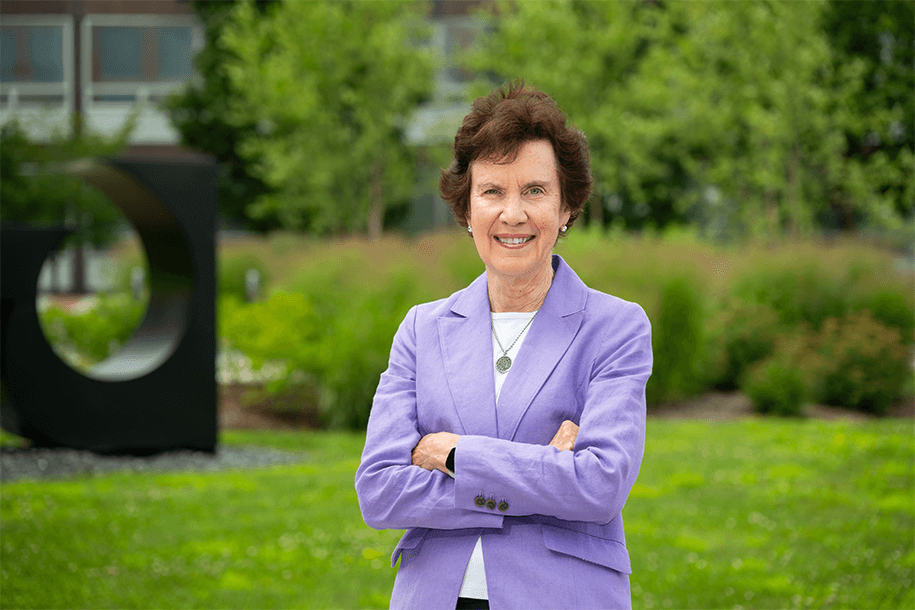
American College of Physicians (ACP) President-Elect Jan K. Carney, M.D., M.P.H., associate dean for public health and health policy, professor of medicine, and chief of the Division of Public Health at the Larner College of Medicine, joined members of the ACP in Washington, D.C., for Leadership Day in April. Participants received advocacy training, an update on ACP legislative priorities, and in-depth briefings from members of Congress, administration officials, and key Capitol Hill staffers; they also met with Vermont elected officials—including Vermont Senator Bernie Sanders—and their staff to discuss issues important to internal medicine.
The American College of Physicians is the largest medical specialty organization and second-largest physician group in the United States, with 161,000 internal medicine physicians, related subspecialists, and medical students in more than 172 countries worldwide.
Leadership Day is the ACP’s annual two-day advocacy event that enables members from across the country to bring issues of concern and policy priorities to Congress and try to influence the legislative process on behalf of internal medicine. Key priority issues for Leadership Day 2025 included advocating for legislation to reduce administrative burden on physicians, support physician payment, improve access to care for patients, strengthen the physician workforce, and reduce the burden of student debt.
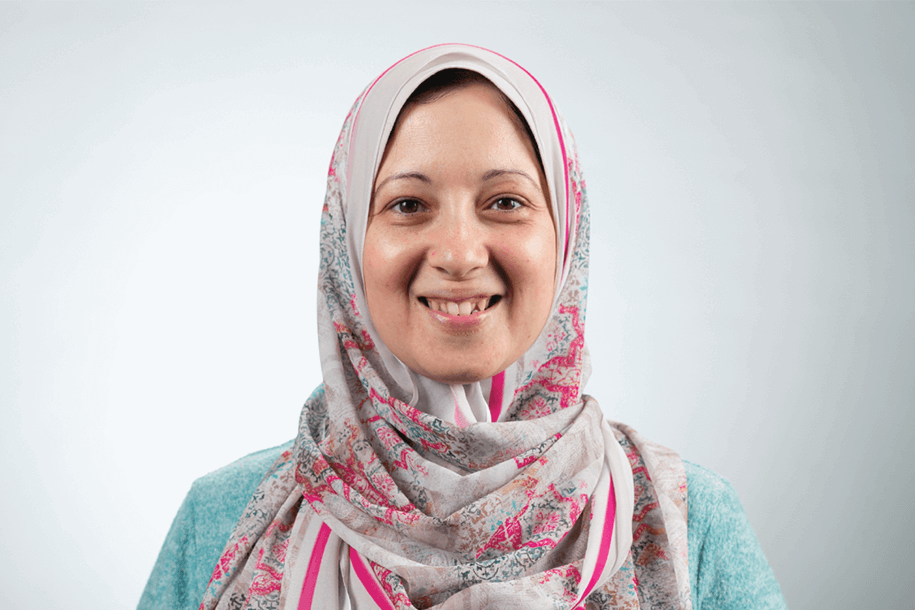
University of Vermont Cancer Center member Reem Aboushousha, Ph.D., a faculty scientist in the Janssen-Heininger lab, was recently awarded a Parker B. Francis Fellowship from the Francis Family Foundation. The new funding will enable her to study lung cancer; specifically, the role of glutathione S-transferase P (GSTP) and S-glutathionylation in chemotherapy resistance in lung adenocarcinoma.
Lung cancer is the leading cause of cancer-related deaths worldwide, with non-small cell lung cancer (NSCLC) accounting for 85 percent of all lung cancer cases. Lung adenocarcinoma (LUAD), the most common subtype of NSCLC, is associated with high mortality rates, particularly due to the development of chemotherapy resistance. Recent work from the lab of Yvonne Janssen-Heininger, Ph.D., has shown that a significant percentage of LUAD samples have high levels of GSTP. These high levels of GSTP have been linked to poor survival, indicating that GSTP may be a promising target for therapeutic intervention.
Aboushousha’s research will explore potential therapeutic strategies to target GSTP and sensitize LUAD cells, with the goal of overcoming chemotherapy resistance and improving patient outcomes. With high rates of lung cancer in Vermont and Northern New York, findings from this study could directly benefit patients in the University of Vermont Cancer Center (UVMCC) catchment area.
The Parker B. Francis Fellowship, which supports three years of funding, is awarded to candidates with a strong aptitude in research who are transitioning from post-doctoral trainee to independent investigator. The fellowship was made possible with support from the Center for Biomedical Shared Resources and a UVMCC pilot grant.
Read more about Dr. Aboushousha’s research
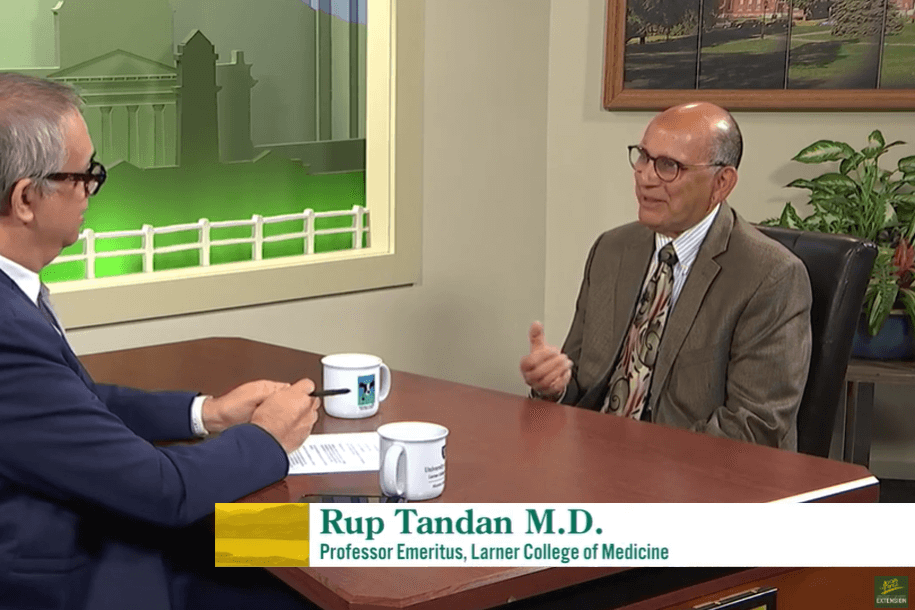
May is ALS Awareness Month, observed to raise awareness of and foster research for amyotrophic lateral sclerosis (ALS), also known as Lou Gehrig’s disease. ALS is a progressive, fatal, neurodegenerative disorder of upper and lower motor neurons. The cause of ALS is not known, and no cure exists.
The May 27, 2025, episode of the University of Vermont’s Across the Fence program features Rup Tandan, M.D., professor emeritus of neurological sciences at the UVM Larner College of Medicine, discussing the symptoms, diagnosis, prevention, and treatment for ALS.
Across the Fence is a daily 15-minute television program co-produced by UVM Extension and WCAX-TV informing viewers about activities being conducted by University of Vermont faculty, staff, and students that benefit viewers and their communities. The longest-running farm, home, and community television program in the country, Across the Fence airs weekdays at 12:15 p.m. on WCAX-TV Channel 3.
Watch Dr. Tandan on Across the Fence
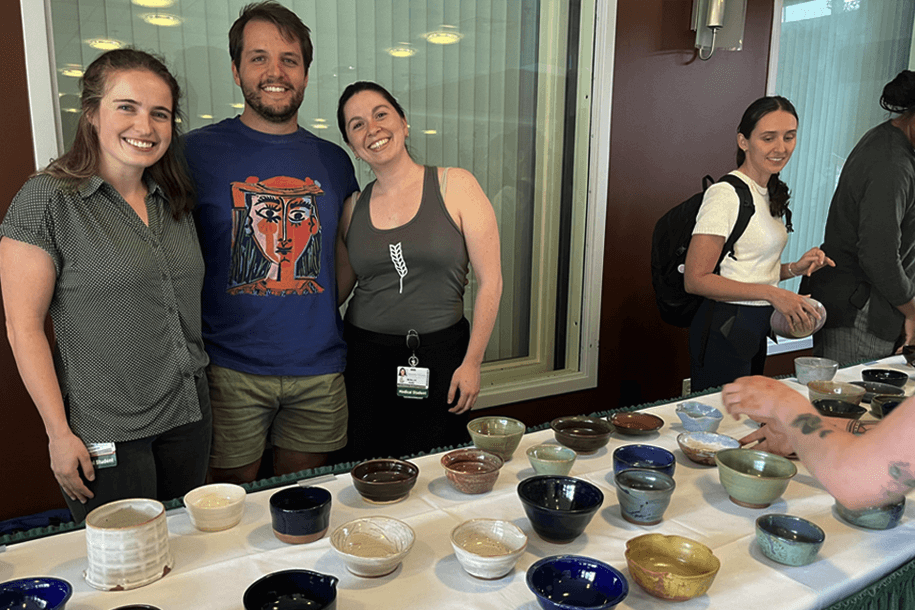
Last month, around 60 members of the Larner community gathered for the second annual ice cream social fundraiser known as “Empty Bowls,” sponsored by the Larner Medical Student Council and organized by Class of 2026 Community Service Student Council Representative Molly Hurd ’26. Dozens of handmade bowls, many crafted by Larner medical student Michael Greenberg ’27 and other local pottery students, were sold to raise more than $800 for partner Feeding Chittenden. Greenberg has been studying pottery making as a hobby for nine years, including teaching classes at the former UVM Living/Learning Center.
“We are amazed and thankful to our community members for helping feed Vermonters throughout the year. Michael, a former volunteer at our Burlington food shelf, has directly seen the power of community in action—helping neighbors through tough times with dignity, compassion, and a warm meal.” — Feeding Chittenden
Feeding Chittenden, a program of the Champlain Valley Office of Economic Opportunity, works to alleviate hunger by feeding people and cultivating opportunities. As the largest direct service emergency food provider in Vermont, Feeding Chittenden serves more than 12,000 people each year.
Read more about Feeding Chittenden
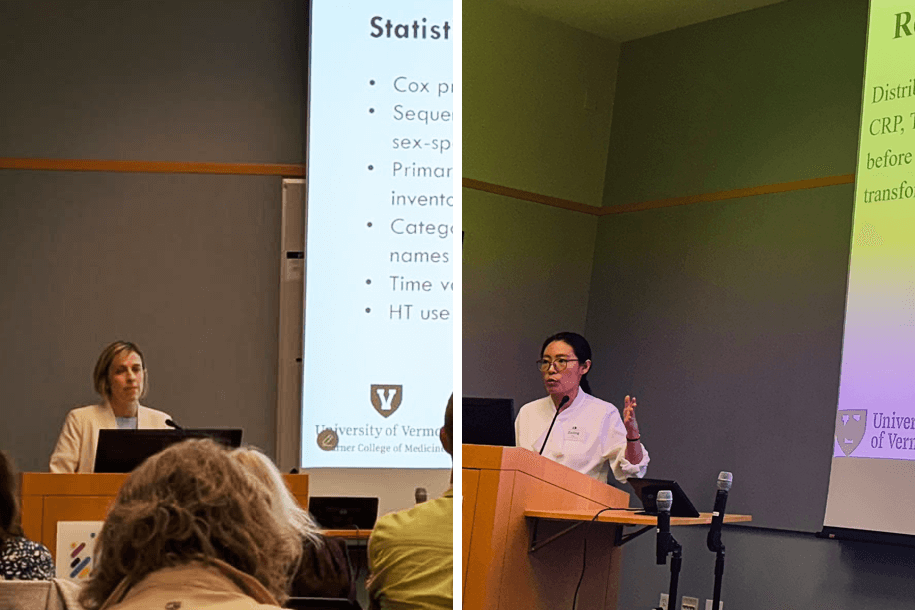
At the annual Women’s Health Initiative (WHI) Investigator Meeting May 1–2, 2025, in Seattle, Tracy Madsen, M.D., Ph.D., postdoctoral associate Zailing Xing, Ph.D., and colleagues from the University of Massachusetts and Albert Einstein College of Medicine presented an invited plenary presentation titled “Migraine and Stroke Risk in Postmenopausal Women: The Role of WHI in Advancing Knowledge of Epidemiology, Mechanisms and Preventive Strategies.” The team also led an interactive discussion focusing on additional research that is needed in order to better understand how to both treat migraine and prevent stroke in women.
Madsen, associate professor of emergency medicine and vice chair of research at the Larner College of Medicine, presented “Migraine as a Risk Factor for Stroke across the Lifespan and Modification of Risk after Menopause.” Xing, who is working in Madsen’s epidemiology lab, presented “Migraine and Mechanism: The Role of Inflammatory Biomarkers in the Link between Migraine and Stroke.” This work, funded by a grant from the American Heart Association, uses data from the Women’s Health Initiative, an ongoing longitudinal cohort study of >160,000 postmenopausal women, to study how migraine history may be a risk factor for future stroke.
“[This] was a great opportunity to not only advance our knowledge of stroke in postmenopausal women but also to discuss the current landscape of women’s health research with other scientists from across the country and with other [WHI] investigators,” Madsen said.
Sponsored by the National Heart, Lung, and Blood Institute, WHI is a long-term national health study that began in 1991. It focuses on strategies for preventing heart disease, breast and colorectal cancer, and osteoporosis in postmenopausal women.
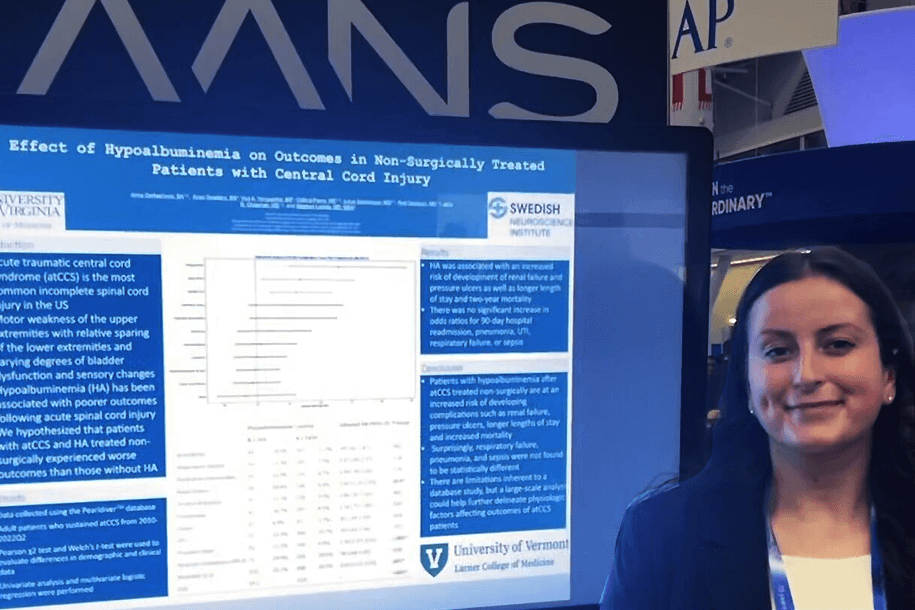
Larner Class of 2027 medical student Anna Gorbacheva attended the 2025 American Association of Neurological Surgeons (AANS) Annual Meeting, held April 25–28 in Boston. She presented her research posters “Incidence and Predictors of Readmission Following Hospitalization for Thoracic Disc Herniation” and “Effect of Hypoalbuminemia on Outcomes in Non-Surgically Treated Patients with Central Cord Injury,” in partnership with the University of Virginia School of Medicine and the Swedish Neuroscience Institute.
Founded in 1931 as the Harvey Cushing Society, AANS is a scientific and educational association with more than 12,000 members worldwide dedicated to advancing the specialty of neurological surgery in order to provide the highest quality of neurosurgical care to the public. The theme of this year’s meeting was “Power of One, Impact of Many,” celebrating the individual contributions that collectively advance the field of neurosurgery.
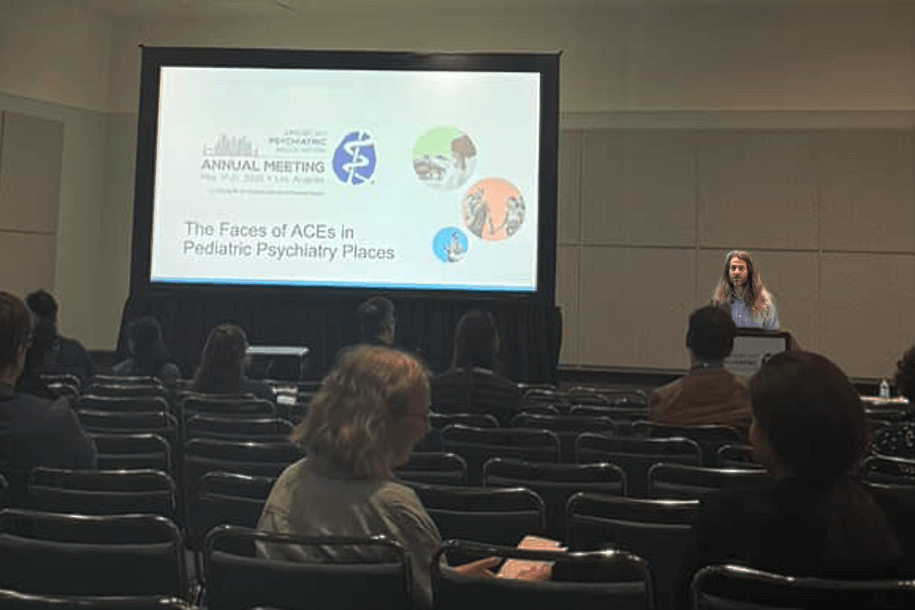
Andrew Rosenfeld, M.D., associate professor of psychiatry and pediatrics, Karen Lewicki, M.D., clinical assistant professor of psychiatry, and a colleague from UCLA presented “For Want of Sleep and Friends: Identifying Patients with Developmental Trauma and Tailoring Treatment Approaches” at the American Psychiatric Association’s 2025 annual meeting, held May 17–21 in Los Angeles.
Lifestyle Medicine (LM) has demonstrated benefits for patients in halting, preventing, and even reversing chronic illness, yet these benefits may seem less accessible for patients with histories of developmental trauma. Early trauma can cause difficulty for patients in all the domains that LM calls its pillars—restorative sleep, stress management, plant-predominant whole food diet, physical activity, avoidance of risky substances, and social connection.
In their presentation, Rosenfeld et al. introduced participants to research on the impacts of developmental stress through the life course, focusing on where these overlap with lifestyle medicine domains, with an emphasis on sleep and social connection. They reviewed molecular and epigenetic impacts of trauma and how to address these concerns in the clinical encounter, and discussed implementation of integrative and lifestyle approaches to trauma-informed care for both adult and pediatric populations.
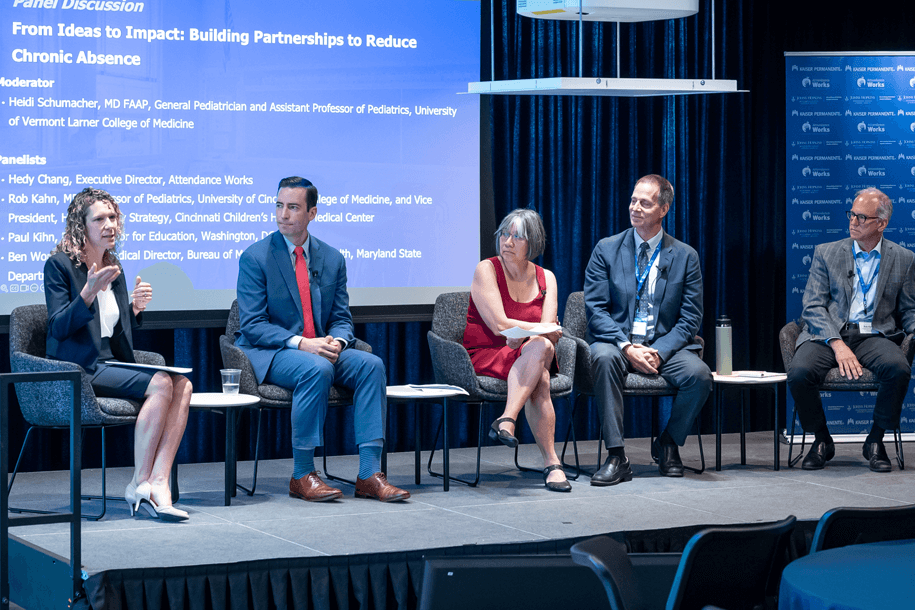
Heidi Schumacher, M.D.’10, assistant professor of pediatrics at the Larner College of Medicine and a member of Larner’s Vermont Child Health Improvement Program team, was a featured speaker at the All In for Attendance summit on June 10 in Washington, D.C., focusing on public health strategies to address chronic school absenteeism among students in grades K–12. The event was co-hosted by the Bloomberg American Health Initiative at the Johns Hopkins Bloomberg School of Public Health, Kaiser Permanente, and Attendance Works.
Schumacher served as chair of the plenary panel for the event, moderating discussion among national health and educational leaders regarding the state of school attendance in the United States, the root causes for missed school, and opportunities for strategic partnerships across child-serving sectors. She also shared work she is leading under the Every Day Counts initiative, which aims to leverage health and educational partnerships in rural Vermont communities to improve attendance and address underlying health and social factors, with funding from UVM’s Leahy Institute for Rural Partnerships. Bernice Garnett, Sc.D., M.P.H., associate professor of education and biomedical & social sciences, spoke in an afternoon session about the intersection of community schools, school attendance, and public health in Vermont.
Throughout the day, speakers and panelists from across the country discussed a public health approach to improve chronic absenteeism, including:
- A new public health framework that elevates chronic absenteeism as a pediatric vital sign, and offers action-oriented recommendations like best practices for data sharing, messaging, and garnering community buy-in
- The importance of strategic and multidisciplinary community collaboration to elevate strategic partnerships that align goals and drive progress around chronic absenteeism
- Development of strengths-based policies and programs that support school attendance and decrease chronic absenteeism; in particular, policy responses that draw upon emerging research in cities throughout the U.S. and abroad that address chronic absenteeism
“As a pediatrician, I know that healthy bodies and minds are the foundations of school engagement and success—and success in school is one of the leading predictors of long-term health.” — Heidi Schumacher, M.D.’10
Watch a video of the All In for Attendance Summit
Read more about the Every Day Counts initiative
Read an interview with Dr. Schumacher about post-pandemic chronic absenteeism
